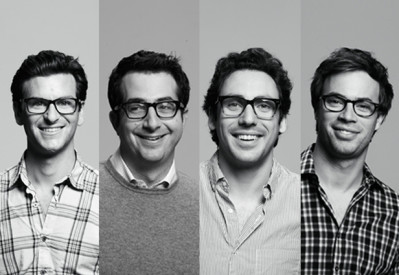
Choosing new eyeglasses can be an overwhelming task— and this is something I can say with conviction, from personal experience.
When you enter a store, you’re bombarded by what seems like hundreds of different frames. You’re left to your own peril and the counsel of the salesperson who is the supposed expert on what frames flatter you most. When you finally do make a purchase, it’s often upwards of $300 or $400.
Enter Warby Parker. Founded in 2010 by Wharton graduates David Gilboa, Neil Blumenthal, Andrew Hunt, and Jeffrey Raider, the hugely successful e-commerce eyewear startup offers geek-chic frames for $95. The founders saw a disconnect in buying eyewear – there was a huge gap between what it cost to make glasses and what people were paying.
Warby Parker is an example of successful disruptive innovation, a concept that the Mack Center emphasizes. The company Luxottica has a huge hold on the eyewear market.
But Warby Parker has done more than challenge Luxottica; it has established a name of its own. The company has created a unique niche style. The frames are styled with a hip vibe, almost like the artists in the Soho neighborhood where the brand’s headquarters are located. The models on the website resemble musicians, touting frames with old-fashioned names like Chandler and Winston. Preppy meets alternative.
To me, one of the most important factors of its success is the attention to the consumer. It allows customers a trial period, during which they can try on five pairs of glasses in five days and bring them back. It creates a personal rapport with the customer, which speaks volumes about the company’s reliance on mutual trust. Warby Parker also donates one pair of glasses to those in need for every pair bought, an idea that appeals to the “give-back” trend in young consumers today.
Warby Parker has established a loyal customer base, and has attracted even more customers since its expansion into brick-and-mortar. It’s only been three years since it challenged Luxottica’s share, but it’s passed that test with flying colors. And with a name like Warby Parker, being remembered is inevitable.



